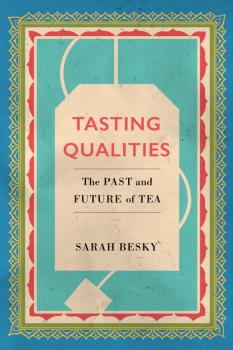ТОП просматриваемых книг сайта:
Биология
Различные книги в жанре Биология, доступные для чтения и скачиванияNecrotizing Enterocolitis - Michael S. Caplan
Colloquium Series on Integrated Systems Physiology: From Molecule to FunctionАннотация
Информация о книге
Автор произведения Michael S. Caplan
Жанр Биология
Серия Colloquium Series on Integrated Systems Physiology: From Molecule to Function
Аннотация
Moral Ground brings together the testimony of over eighty visionaries—theologians and religious leaders, scientists, elected officials, business leaders, naturalists, activists, and writers—to present a diverse and compelling call to honor our individual and collective moral responsibility to our planet. In the face of environmental degradation and global climate change, scientific knowledge alone does not tell us what we ought to do. The missing premise of the argument and much-needed center piece in the debate to date has been the need for ethical values, moral guidance, and principled reasons for doing the right thing for our planet, its animals, its plants, and its people.Contributors from throughout the world (including North America, Africa, Australia, Asia, and Europe) bring forth a rich variety of heritages and perspectives. Their contributions take many forms, illustrating the rich variety of ways we express our moral beliefs in letters, poems, economic analyses, proclamations, essays, and stories. In the end, their voices affirm why we must move beyond a scientific study and response to embrace an ongoing model of repair and sustainability. These writings demonstrate that scientific analysis and moral conviction can work successfully side-by-side.This is a book that can speak to anyone, regardless of his or her worldview, and that also includes a section devoted to “what next” thinking that helps the reader put the words and ideas into action in their personal lives. Thanks to generous support from numerous landmark organizations, such as the Kendeda Fund and Germeshausen Foundation, the book is just the starting point for a national, and international, discussion that will be carried out in a variety of ways, from online debate to “town hall” meetings, from essay competitions for youth to sermons from pulpits in all denominations. The “Moral Ground movement” will result in a newly discovered, or rediscovered, commitment on a personal and community level to consensus about our ethical obligation to the future.
Аннотация
This is our fifth book in the series of comprehensive travel guidebooks to birdwatching destinations in Australia.<br /> <br />The Northern Queensland guide describes the most interesting and reasonably accessible birding spots located in the northern half of the vast Queensland State.<br /> <br />Description of each birding site includes, at a minimum, habitat description, site facilities and key avifauna. The authors have cross-checked and supplemented their findings with verified sightings reported online. Ebook format is also available.<br /> <br /><a href="https://www.australian-good-birding-guide.com/">https://www.australian-good-birding-guide.com/</a><br /> <br />Other books by Ted & Alex Wnorowski:<br />Australian Good Birding Guide: NSW-ACT<br />Australian Good Birding Guide: Tasmania<br />Australian Good Birding Guide: Victoria<br />Australian Good Birding Guide: Southern & Central Queensland<br /> <br />In preparation:<br />Australian Good Birding Guide: South Australia
Аннотация
Глобальное изменение климата – самая серьезная и неотложная проблема из всех, с какими сталкивалось человечество за свою историю. От того, как мы будем ее решать в следующие тридцать лет, зависит, в каком мире мы будем жить и какой мир передадим своим детям и внукам. «Какое будущее мы выбираем» – страстный призыв к действию бывшего секретаря Рамочной конвенции ООН об изменении климата Кристианы Фигерес и ее соратника Тома Риветт-Карнака. Авторы убеждены: человечество еще может избежать худшего сценария и предотвратить катастрофические последствия климатических изменений, но действовать надо немедленно. Практичная, оптимистичная и вдохновляющая, эта книга обращена ко всем поколениям, к каждому, кого угнетает сознание собственного бессилия перед лицом климатического кризиса. Авторы показывают, откуда черпать оптимизм, чтобы играть позитивную роль в предстоящих грандиозных переменах, и, наконец, какие практические шаги может предпринять каждый из нас, чтобы внести вклад в эти изменения.
Reversing Climate Change: How Carbon Removals Can Resolve Climate Change And Fix The Economy - Graciela Chichilnisky
Аннотация
'The genius of Graciela Chichilnisky is recognized by economists and with this book she has focused that talent to the dire problem facing mankind. To survive we must do more than stave off a further rise of CO₂ in the atmosphere. We need to reverse it if the planet is to be viable. Professor Chichilnisky's achievement along with her co-author Peter Bal is to show us the way to rescue our future.'<div style='text-align: right;'>Professor Edmund Phelps2006 Nobel Laureate in EconomicsDirector, Center on Capitalism and Society, Columbia University</div>'In the world of economic theory, Graciela Chichilnisky is an A-list star.'<div style='text-align: right;'>The Washington Post</div>'The team of Chichilnisky and Bal has exceptional skill in explaining complex topics with great clarity making it easy for non-scientists interested in climate change to read. They address the science of climate change, the complex international negotiations needed to reach a compromise between developing nations and the developed ones, and importantly the urgent need to find a way of extracting CO₂ from the atmosphere and utilizing and sequestering it in a commercially profitable manner. The last topic has been almost completely ignored by the media.'<div style='text-align: right;'>Theodore Roosevelt IVManaging Director & Chairman of Barclays Cleantech InitiativeBARCLAYS</div>The Kyoto Protocol capped the emissions of the main emitters, the industrialized countries, one by one. It also created an innovative financial mechanism, the Carbon Market and its Clean Development Mechanism (CDM), which allows developing nations to receive carbon credits when they reduce their emissions below their baselines. The carbon market, an economic system that created a price for carbon for the first time, is now used in four continents, is promoted by the World Bank, and is recommended even by leading oil and gas companies. However, one critical problem for the future of the Kyoto Protocol is the continuing impasse between the rich and the poor nations.Who should reduce emissions — the rich or the poor countries?<b>Contents:</b> <ul><li>Introduction: Climate Change and our Future</li><li>Global Crisis and the Mandate of COP</li><li>Insuring the Future</li><li>The Kyoto Protocol and its Carbon Market</li><li>The Road to Paris: An Insider's Timeline</li><li>An Uncertain Future</li><li>Implementing the Carbon Market and its CDM</li><li>The Paris Agreement: Failure as an Opportunity</li><li>Avoiding Extinction</li><li>Four Obscure Articles in the Paris Agreement Hold the Key to Resolve Climate Change</li><li>Reversing Climate Change</li><li>The Future Act of 2018: New U.S. Law Provides Unlimited Tax Credits to Remove CO₂ from Air</li></ul><br><b>Readership:</b> A must read for academics and professionals studying, implementing and analyzing global climate change policies; interested advance undergraduates and postgraduates interested in the follow up of the Kyoto Protocol and UNFCCC 1992 founding.COP21;Climate Change;UNFCCC;Carbon Negative Technology00
Аннотация
geode is rich with shining interiors and tactile relationships, delicate human to delicate earth, small delusions of ownership against wider backdrops of loss and time. Poems acting as guides, helping us navigate and remember, create an intricate overlay of worlds, humans and trees. —Naomi Shihab Nye, New York Times Magazine Susan Barba's new collection of poems resembles the spheroid stone of its name; when cracked open, a glittering and fascinating crystalline structure is revealed but the stony sphere she offers us, and the beauty within, is nothing less than the earth. With anguish and praise, in the spirit of both the ode and the elegy, Barba considers our time within the larger scale of deep-time. The species decreasing in number and disappeared and the possibility of human extinction haunt this book, while new generations and the possibility of renunciation of our old ways animate it. Here is the world, Barba reminds us, like a ball, in our hands.
Аннотация
What is the role of quality in contemporary capitalism? How is a product as ordinary as a bag of tea judged for its quality? In her innovative study, Sarah Besky addresses these questions by going inside an Indian auction house where experts taste and appraise mass-market black tea, one of the world’s most recognized commodities. Pairing rich historical data with ethnographic research among agronomists, professional tea tasters and traders, and tea plantation workers, Besky shows how the meaning of quality has been subjected to nearly constant experimentation and debate throughout the history of the tea industry. Working across fields of political economy, science and technology studies, and sensory ethnography, <I>Tasting Qualities</I> argues for an approach to quality that sees it not as a final destination for economic, imperial, or post-imperial projects but as an opening for those projects.<BR /><BR />  
Информация о книге
Автор произведения Sarah Besky
Жанр Биология
Серия Atelier: Ethnographic Inquiry in the Twenty-First Century










